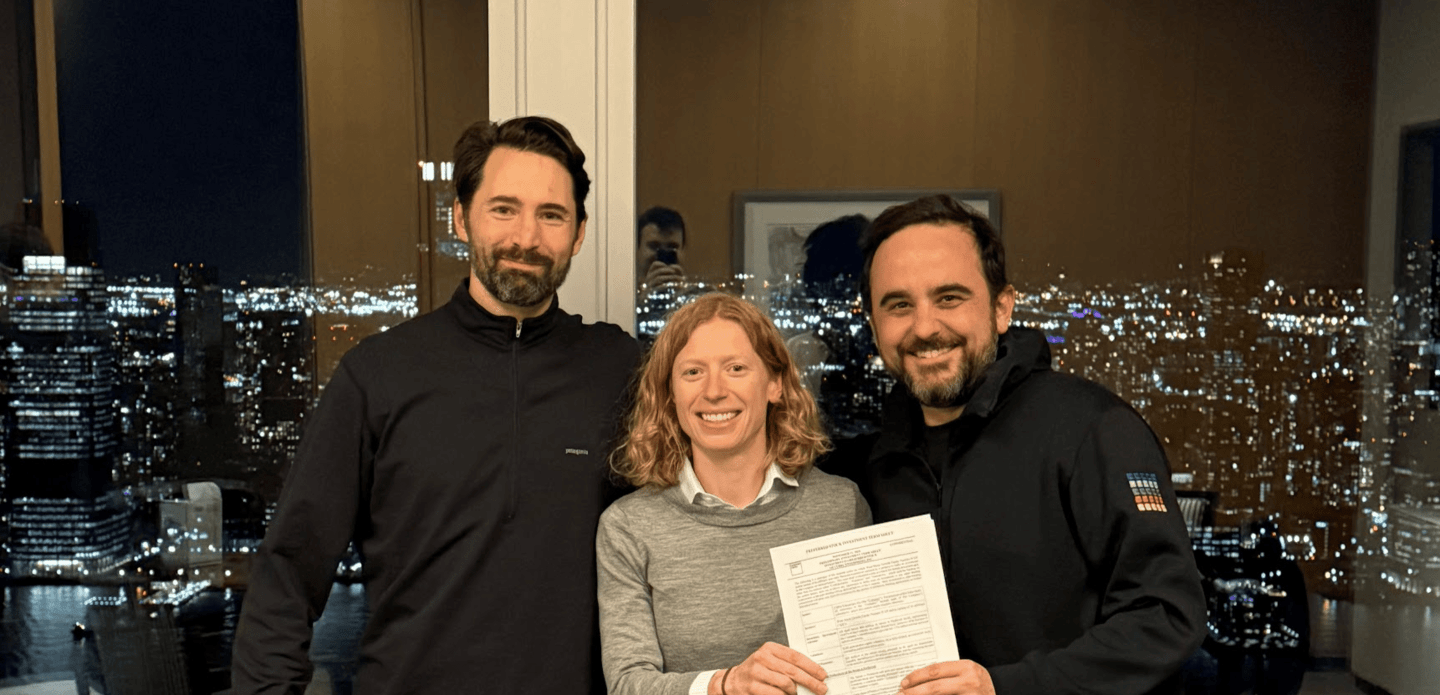Hello and welcome to Eye on AI.
It’s been a week since OpenAI unveiled Sora, its new text-to-video generative AI model it says can turn short text prompts into strikingly realistic videos up to a minute long. The videos shared thus far have been received as thoroughly impressive and a giant leap for AI video generation (said with some reservations to account for the fact that OpenAI hasn’t demonstrated the model actually working or released a technical report). But today, I’m diving into a different through line of the reaction to Sora, and that’s fear.
Outside the tech and AI communities’ continued debate about accelerationism versus doomerism, there are a whole lot of everyday people who are personally terrified seeing this technology progress so rapidly before their eyes. This is not exactly a new response to AI, but it’s one I’ve seen growing and that seemed to hit a new level over the past week with Sora. While scrolling through my For You Page on TikTok, for example, I saw video after video of everyday users who do not typically post about tech news expressing their fears about Sora and AI. One account I follow that typically posts about pop culture and pottery took a break from sharing techniques for making succulent planters to lament about the announcement, asking “Is anyone else concerned that AI is going to be the downfall of society or is it just me?”
“RIP reality,” replied one user.
“I give humans 5 more years tops,” commented another.
“I’m genuinely scared to death,” wrote another user, along with countless others expressing the same sentiment.
It’s easy to see why. We know this technology will be used to deceive, create harmful deepfakes, generate and spread disinformation, and sow chaos. It’s already happening—and at a critical time with democracies on the line. The entire world has already been reeling from these issues as they’ve been perpetuated by social media platforms, and now generative AI is poised to add fuel to the fire. Perhaps even more importantly, technologies like ChatGPT, DALL-E, and now Sora are being positioned as more efficient writers, visual artists, and filmmakers, potentially swallowing up the creative arts that people enjoy, that empower us to express ourselves, and that makes us feel human. And what exactly will we all gain from this? Cheaper stock footage? Movies created by AI? The creators of AI will certainly gain unfathomable amounts of money and power, but for everyone else, it’s not exactly clear what the benefits are and if they’ll be worth the costs.
The way tech companies are going about it isn’t helping either. The shared research community-oriented approach to building AI that existed for decades went fully out the window when OpenAI released ChatGPT and was quickly replaced with secretive development, rapid commercialization, shareholder demands, corporate lobbying, and pursuits for market dominance and $7 trillion valuations.
“At the top AI firms, employees are now being asked to keep their accomplishments secret, and in some cases, stop publishing research papers altogether, upsetting the symbiotic relationship between the pursuit of profits and scientific discovery,” wrote Reed Albergotti in Semafor this past week.
That’s not to say there weren’t commercial incentives before, and it doesn’t account for the passionate community of AI professionals working to bring transparency and accountability to the field. But many everyday people feel burned by the impact digital technologies have had on their lives and society, by tech companies themselves, and by the state of capitalism overall. They don’t feel technology has lived up to its promises, and they’re seeing tech companies rake in record amounts of wealth (not to mention lay off thousands) while they struggle to meet their basic needs. People are already wary tech companies will prioritize profits over their best interest, and so the increasingly secretive development, lobbying, and so on isn’t exactly furthering trust in AI or the companies creating it.
It’s important to point out that many new technologies were initially met with fear only to become accepted and even critical in our lives. The introduction of electricity sparked (valid) safety concerns and an entire anti-electricity movement. Photography, while welcomed by some, received massive backlash in the arts world as people viewed it as a cheap shortcut that would supersede the true art of painting (sound familiar?). And anyone reading this likely witnessed the advent of video games—and reactionary concerns they’d foster mass violence and addiction—only to see those fears haven’t exactly come true, research actually suggests positive social and cognitive impacts associated with gaming, and that it’s grown to become a massive $200+ billion industry—larger than the film and music industries combined. Even the modern mirror, a now everyday household item, was widely feared upon its introduction as it was thought to pose a moral threat to society by encouraging vanity. Many said the same about front-facing cameras and selfies.
Now that we have some historical context, we can talk about what feels different this time around, because AI does feel different. The TikToker I mentioned earlier put it well when he said he thinks there will be a day in the next few months when we wake up and cannot tell the difference between what’s fake and real online. In many ways, this is already happening and people cannot tell the best AI-generated images from real photographs. Electricity is in fact dangerous when not properly set up and managed. And while mirrors and photography were unknown, they at least reflected reality. Generative AI, on the other hand, distorts and deceives us of reality by design.
Over these past several months, I’ve seen some argue these generative AI tools are not enabling people to do anything they couldn’t already do in Photoshop or After Effects. Photoshop is probably the closest proxy for software that can distort reality, and we could debate the positive and negative impact it’s had. But I think it’s becoming clearer every day that these AI tools are far more powerful. More importantly, they manipulate reality via a black box, not a human controlling a Lasso tool. And critically, Photoshop takes serious time and skill to learn (and is of course now offering generative AI tools), whereas anyone who can write a sentence can prompt AI tools to create whatever they want almost instantaneously.
As someone who’s covered AI for almost a decade, I’ve gone from few people around me even knowing what AI is to overhearing a table of teachers out to lunch desperately trying to figure out how to handle it in their classrooms, receiving concerned messages from family members asking me to explain it, and encountering fear of AI from everyday people with every swipe on social media.
Sora may not be generally available right now, but just the knowledge of its existence is already spreading a ripple of uneasiness through society. Well, at least we can all console ourselves with the thought that, as the AI accelerationists like to say, the AI-generated video you’re watching right now is the worst AI-generated video you’ll ever watch from here on out. Wait, why don’t you look happy?
And with that, here’s more AI news.
Sage Lazzaro
sage.lazzaro@consultant.fortune.com
sagelazzaro.com
AI IN THE NEWS
Nvidia crushes its quarterly earnings. The company pulled in $22.1 billion in Q1 and 265% revenue growth over the past year, also reporting its data center sales grew by 409%. The numbers beat Wall Street expectations and yet again demonstrated AI is a massive driver for the company, whose GPUs have proven to be a vital resource for companies looking to tap generative AI and the emerging crop of LLMs. Nvidia shares had been driving the S&P over the past year and enjoyed a 10% price bump yesterday following earnings, as Fortune’s Will Daniel noted.
Chipmaker Astera Labs files for IPO. "The timing is very intentional. Astera is going public amid a wave of enthusiasm for AI stocks, alongside the broader rally in the semiconductor space," Matthew Kennedy, senior strategist at IPO research firm Renaissance Capital, told Reuters. The company, which had been struggling and posted a $58.3 million net loss in 2022, reported a lesser loss of $26.3 million in its IPO filing yesterday. Astera Labs supplies semiconductor-based connectivity technology for AI, collaborating with companies like Nvidia and Intel.
Reddit content deal is with Google, Reuters reports. Jeremy mentioned reports of the deal in Tuesday's newsletter, but at the time the tech company involved was not known. Now Reuters is saying it is Google, and reporting the licensing arrangement, which will allow Google to train AI models on Reddit threads, is worth about $60 million per year. Reddit is preparing for a highly anticipated IPO and joins a small crop of publishers that are striking deals to make their content available for use in AI products. For comparison, OpenAI’s deal with Axel Springer, the parent company of publishers including Politico and Business Insider, is reported to be worth around $10 million per year and includes a “performance fee” based on how much OpenAI uses the company’s content.
Google leans into “open” AI with new Gemma models. Called Gemma 2B and 7B as a nod to the company’s flagship Gemini models, the new “lightweight” models will be available for developers to use, fine-tune, and experiment with for free. The company makes clear that these models are “open” in regards to making the weights available, though they’re not open-source as it’s traditionally understood to mean. As Jeremy wrote yesterday, Google had until this point firmly planted its models in the proprietary camp in the openness debate surrounding AI. The new models will compete with offerings from Meta, Hugging Face, and more that have already been opening their AI offerings to various degrees.
EYE ON AI CALENDAR
March 18-21: Nvidia GTC AI conference in San Jose, Calif.
April 15-16: Fortune Brainstorm AI London (Register here.)
May 7-11: International Conference on Learning Representations (ICLR) in Vienna, Austria
June 25-27: 2024 IEEE Conference on Artificial Intelligence in Singapore
March 11-15: SXSW artificial intelligence track in Austin, Tex.
FORTUNE ON AI
EYE ON AI NUMBERS
82%
That’s how much cheaper startup Inference.ai claims it is compared to AWS, Microsoft, and Google Cloud. The company offers GPU clouds-as-a-service, including access to the highly coveted Nvidia H100s and over 15 different Nvidia GPU SKUs all together, allowing customers to deploy AI without massive infrastructure investments. Yesterday, it announced a new AI chatbot it says will make this process even easier by taking the “guesswork” out of choosing the right GPU setup, according to SiliconAngle. The generative-AI-powered chatbot will ask customers simple questions in natural language about what specifically they’re trying to build and suggest the optimal GPU setup for their unique computing needs.
As we’ve written many times before—and as was shown yet again by Nvidia’s stellar earnings—GPUs are the hardware backbone of AI. The best ones are also very expensive and difficult to come by, making GPU strategy a top priority for any AI deployment. Inference.ai’s claims are certainly intriguing, though the company is not alone in trying to find its way into the GPU supply chain. It has competition with the likes of Lambda Labs, Run.ai, CoreWeave, and others.
This is the online version of Eye on AI, Fortune's weekly newsletter on how AI is shaping the future of business. Sign up for free.













